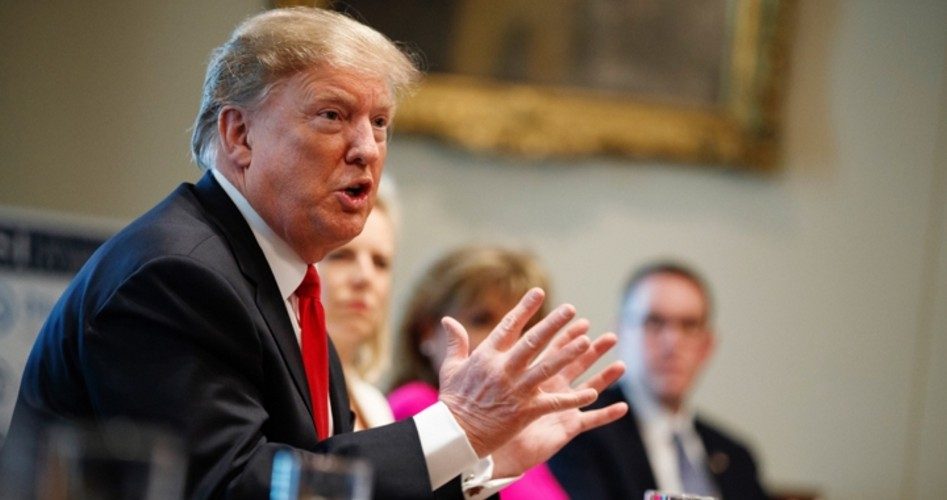
During an interview with Face the Nation’s moderator Margaret Brennan that aired on February 3, Brennan asked President Trump what would make him use the U.S. military in Venezuela.
Trump answered: “Well I don’t want to say that. But certainly it’s something that’s on the — it’s an option.”
Brennan than asked the president if he would personally negotiate with Venezuela’s Marxist President Nicolás Maduro to convince him to exit.
Trump stated that Maduro requested a meeting “a number of months ago,” but he “turned it down because we’re very far along in the process. You have a young and energetic gentleman but you have other people within that same group that have been very very — if you talk about democracy — it’s really democracy in action.”
Trump’s reply was somewhat short on details and requires some explanation. The “young and energetic gentleman” he refers to is Juan Guaidó, the 35-year-old president of Venezuela’s National assembly who is regarded as the leader of the opposition. Guaidó has already received support from entities such as the Organization of American States (OAS), Brazil, Chile, and the U.S. territory of Puerto Rico.
Puerto Rican Governor Ricardo Rossello said in a January 18 statement, “We join the claim of the vast majority of the governments of the American hemisphere, acknowledging Juan Guaidó as the acting president of the Republic of Venezuela.”
Brazil’s government issued a statement on January 12 saying it recognized Guaidó as the country’s rightful president and welcomed his readiness to “constitutionally assume the Venezuelan presidency.”
Two days after Maduro’s inauguration on January 10, U.S. Secretary of State Mike Pompeo declared that “the Maduro regime is illegitimate and the United States will work diligently to restore a real democracy to that country,” adding that “We are very hopeful we can be a force for good to allow the region to come together to deliver that.”
When Brennan asked Trump about his willingness to negotiate with Maduro, he replied:
I would say this. I decided at the time [when Maduro first requested a meeting], “no” because so many really horrible things have been happening in Venezuela when you look at that country. That was the wealthiest country of all in that part of the world, which is a very important part of the world. And now you look at the poverty and you look at the anguish and you look at the crime and you look at all of the things happening. So, I think the process is playing out — very very big tremendous protests.
In other words, Trump believes things in Venezuela have gone past the point of no return.
Reuters reported that Russia, a major creditor to Venezuela in recent years, quickly urged restraint.
“The international community’s goal should be to help [Venezuela], without destructive meddling from beyond its borders,” Alexander Shchetinin, head of the Latin America department at Russia’s Foreign Ministry, told Interfax.
Shchetinin did not define “meddling,” but his message was clearly directed at the United States and other nations that have expressed support for Guaidó.
Photo: AP Images
Related articles:
Pressure Building to Remove Venezuela’s Marxist Dictator
If the Army Stands With Maduro, What Is Plan B?
Pressure to Oust Maduro Grows Inside and Outside Venezuela
Venezuela’s Marxist President Maduro Inaugurated for Second Term
Venezuela Legislature Wants Maduro Out; Brazil Recognizes Guaido as President



